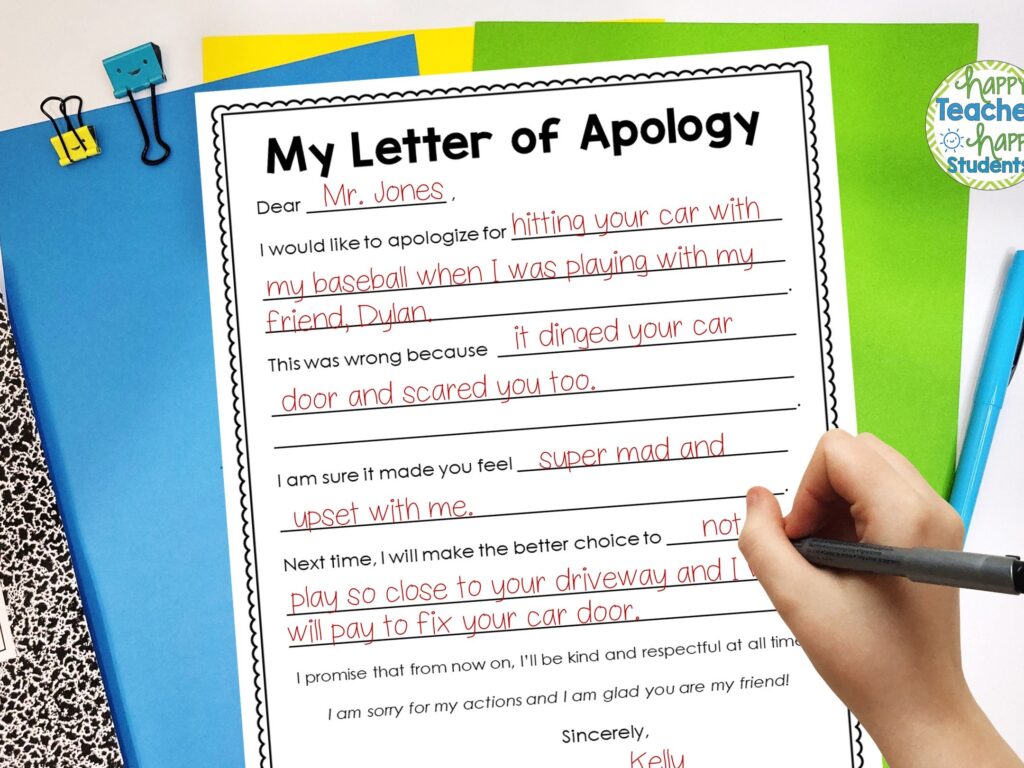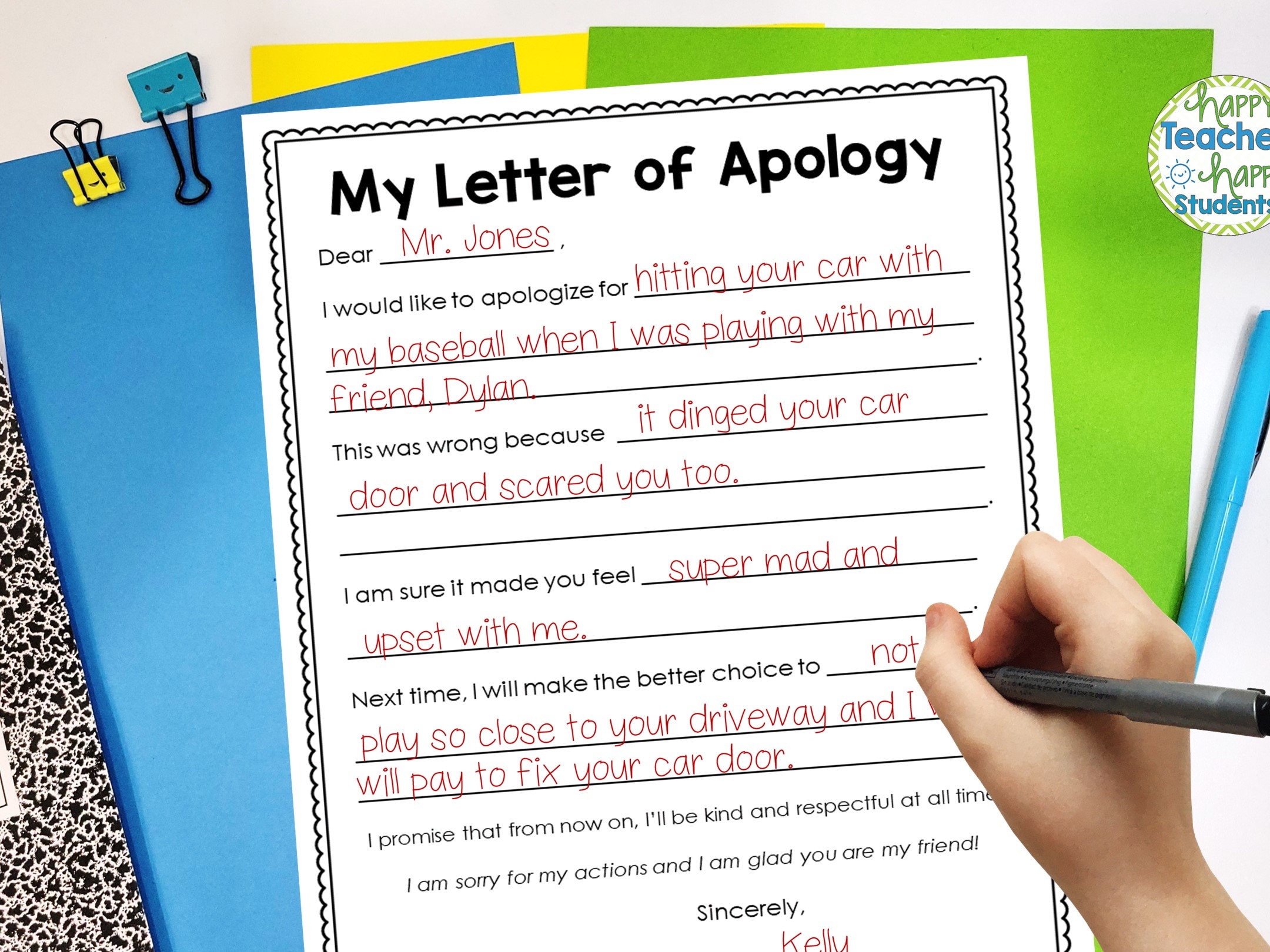
The Art and Necessity of ‘To Apologize To’: Mastering Sincere Regret
In a world increasingly defined by rapid communication and instantaneous reactions, the ability to apologize to someone effectively is becoming a rare and valuable skill. More than just uttering the words “I’m sorry,” a true apology involves understanding the impact of one’s actions, taking responsibility, and demonstrating a genuine commitment to change. This article delves into the nuances of a meaningful apology, exploring why it’s crucial for maintaining healthy relationships, fostering trust, and navigating the complexities of personal and professional life. We will examine the key components of a sincere apology and provide practical guidance on how to apologize to various individuals in different situations.
Understanding the Power of a Genuine Apology
An apology, when delivered correctly, can be a powerful tool for reconciliation. It acknowledges the hurt caused, validates the other person’s feelings, and opens the door for forgiveness. However, a poorly executed apology can exacerbate the situation, leading to further resentment and damaged relationships. A genuine apology requires empathy, humility, and a willingness to understand the other person’s perspective. It’s about more than just saying you’re sorry; it’s about demonstrating that you understand the impact of your actions and are committed to preventing similar mistakes in the future. Learning how to apologize to effectively is a vital skill for navigating interpersonal relationships successfully.
The Components of a Sincere Apology
A sincere apology typically comprises several key elements:
- Acknowledgement of the Offense: Clearly state what you did wrong. Avoid vague statements and be specific about the action that caused harm.
- Acceptance of Responsibility: Take ownership of your actions without making excuses or blaming others. This demonstrates that you understand your role in the situation.
- Expression of Remorse: Convey genuine regret for the pain you caused. Use words that express your sorrow and empathy for the other person’s feelings.
- Offer of Restitution: If possible, offer to make amends for the harm you caused. This shows that you are willing to take concrete steps to repair the damage.
- Commitment to Change: Explain how you will avoid repeating the behavior in the future. This demonstrates that you have learned from your mistake and are committed to preventing similar incidents.
Navigating Different Apology Scenarios
The approach to apologizing can vary depending on the context and the relationship with the person you’ve wronged. Here are some examples of how to apologize to different individuals in various situations:
Apologizing to a Friend
When apologizing to a friend, sincerity and vulnerability are key. Acknowledge the specific action that caused hurt, express your genuine remorse, and emphasize the value you place on the friendship. Be open to listening to their feelings and understanding their perspective. For example, if you missed a friend’s birthday party due to a last-minute work commitment, you might say something like: “I’m so sorry I missed your birthday party. I know how much it meant to you, and I feel terrible that I wasn’t there. Work unexpectedly demanded my attention, and I should have communicated with you sooner. I value our friendship deeply, and I promise to make it up to you.”
Apologizing to a Family Member
Apologizing to a family member can be particularly challenging due to the complex dynamics and history often involved. It’s crucial to approach the situation with patience, empathy, and a willingness to listen. Acknowledge the specific offense, take responsibility for your actions, and express your remorse for the pain you caused. Be prepared to address any underlying issues that may have contributed to the situation. Offer restitution if possible, and demonstrate a commitment to improving the relationship. The ability to apologize to family is important for the health of your family relationships. [See also: Repairing Family Relationships]
Apologizing to a Romantic Partner
Apologizing to a romantic partner requires a high degree of vulnerability and emotional intelligence. Acknowledge the specific behavior that caused hurt, validate your partner’s feelings, and express your sincere remorse. Take responsibility for your actions without making excuses or blaming your partner. Offer restitution if possible, and demonstrate a commitment to changing your behavior in the future. Be open to discussing the issue further and working together to rebuild trust. For instance, if you forgot your anniversary, you could say: “I am incredibly sorry that I forgot our anniversary. I know how important this day is to us, and I feel terrible that I let it slip my mind. There’s no excuse for my forgetfulness, and I understand why you’re upset. I love you very much, and I promise to make it up to you. Let’s plan a special weekend getaway to celebrate us.”
Apologizing at Work
Apologizing in a professional setting requires a different approach than apologizing in personal relationships. It’s important to be concise, direct, and focused on the impact of your actions on the team or the company. Acknowledge the specific mistake, take responsibility for your role in the situation, and explain how you will prevent similar errors in the future. Avoid making excuses or blaming others. Offer a solution to the problem, if possible, and demonstrate a commitment to improving your performance. If you missed a deadline, you might say: “I apologize for missing the deadline on the project. I understand that this has caused delays and inconvenience for the team. I take full responsibility for my failure to manage my time effectively. I have already implemented a new time management system, and I am confident that I will meet all future deadlines. I am committed to ensuring that this does not happen again.” Learning how to apologize to colleagues is key to maintaining a positive work environment.
When *Not* To Apologize
While apologizing is generally a positive action, there are certain situations where it may be counterproductive or even harmful. For example, apologizing for something you didn’t do can undermine your credibility and create a false impression of guilt. Apologizing repeatedly for the same offense can also diminish the impact of your words and make you appear insincere. In some legal or professional contexts, apologizing can be interpreted as an admission of liability. Therefore, it’s important to carefully consider the potential consequences before offering an apology.
The Importance of Forgiveness
While offering an apology is essential for repairing relationships, forgiveness is equally crucial for healing and moving forward. Forgiveness involves letting go of resentment, anger, and the desire for revenge. It’s a process that takes time and effort, and it’s not always easy. However, forgiveness can be incredibly liberating, both for the person who was wronged and for the person who caused the harm. It allows individuals to move on from the past and build a stronger, more resilient relationship. Understanding how to apologize to someone is only half the battle; both parties must be willing to work towards forgiveness.
The Lasting Impact of a Well-Delivered Apology
In conclusion, the ability to apologize to someone effectively is a vital skill for navigating the complexities of personal and professional life. A sincere apology involves acknowledging the offense, accepting responsibility, expressing remorse, offering restitution, and committing to change. By mastering the art of apology, individuals can foster trust, strengthen relationships, and create a more harmonious environment. While it may be difficult to admit wrongdoing, the long-term benefits of a well-delivered apology far outweigh the short-term discomfort. Learning how to apologize to others is an investment in your personal and professional well-being. It allows you to learn from your mistakes, grow as a person, and build stronger, more meaningful connections with those around you. Knowing how to apologize to someone is a skill that will serve you well throughout your life. The act to apologize to someone can be difficult, but the rewards are significant. Make sure you know how to apologize to your friends and family. Being able to apologize to your coworkers is also important. One must know how to apologize to their boss. It is wise to apologize to your spouse. When to apologize to someone is important to consider. Think about how to apologize to someone appropriately. It is necessary to apologize to someone when you have wronged them. The way to apologize to someone is important to consider. Learning how to apologize to someone is crucial for maintaining healthy relationships. [See also: Effective Communication Strategies]

